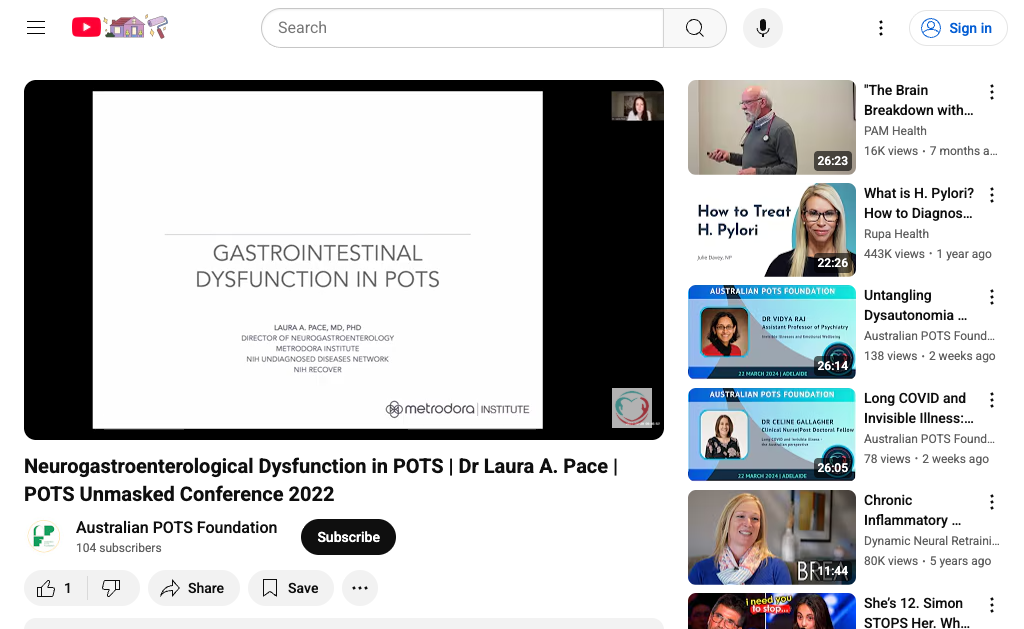Neurogastroenterological Dysfunction in POTS | Dr Laura A. Pace | POTS Unmasked Conference 2022
Dr. Laura A. Pace reviews how POTS commonly involves neurogastroenterological dysfunction, leading to nausea, early satiety, bloating, abdominal pain, reflux, constipation/diarrhea, and weight/nutritional challenges. She explains mechanisms such as autonomic dysregulation with splanchnic blood pooling, impaired vagal and enteric control of motility, small fiber/autonomic neuropathy, visceral hypersensitivity, connective tissue laxity (EDS), and possible immune/mast-cell contributions (MCAS). She outlines a tiered evaluation: history and orthostatic vitals, screening labs (iron, B12, folate, vitamin D), stool/celiac screening when indicated, gastric emptying and transit studies, breath tests, manometry, and pelvic floor assessment—interpreted cautiously given day-to-day variability in POTS. Management emphasizes stabilization of hemodynamics (fluids, salt, compression, pacing), individualized nutrition (small frequent meals, adequate protein/salt, lower fat/fiber during flares, trigger identification, constipation management), and treatment of defined motility disorders (e.g., prokinetics like prucalopride or erythromycin; antiemetics; secretagogues/laxatives; bile acid binders when appropriate). She discusses neuromodulators for visceral pain, pelvic floor biofeedback, gradual exercise, and addressing comorbid EDS/MCAS when present. The talk underscores multidisciplinary, symptom-targeted care to improve function and nutrition while avoiding unnecessary procedures.
